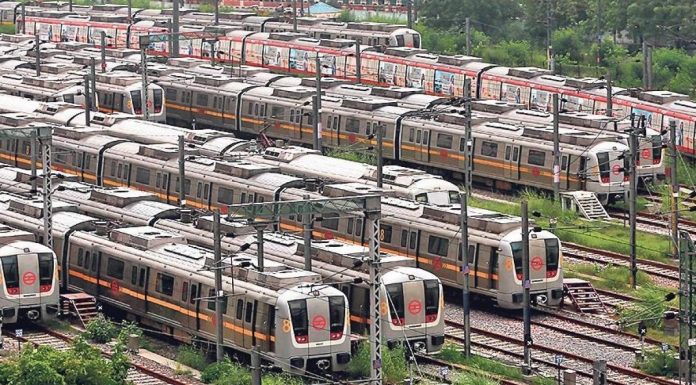Upgrading the technology to pull operations back on track, the Delhi Metro Rail Corporation plans to introduce contactless ticketing mechanism based on QR codes and other digital payment-based methods. The new system will be an upgraded version of the present Automatic Fare Collection System (AFCS).
The Delhi Metro Rail Corporation (DMRC) is already using the same QR Code based ticketing system at Delhi Metro's airport line. The service is now likely to be introduced at all stations under Delhi Metro. The airport Metro also allows the use of the National Common Mobility Card (NCMC), which was launched by Prime Minister Narendra Modi in December last year.
“The Delhi Metro the rail network will upgrade its ticketing technology Automatic Fare Collection System to enable the QR Code, EMV (Account-Based Ticketing) and Rupay based open-loop ticketing following the NCMC standard model as specified by MoHUA (Ministry of Housing and Urban Affairs) for interoperability with other operators by use of non-proprietary standards so that the interface is scalable to other networks (transit operator/retail outlets/parking etc.) in Delhi/NCR,” Anup Dayal, executive director, Corporate Communications, DMRC said.
The Delhi Metro that suffered huge losses following the Covid-19 pandemic outbreak is still struggling to bring back more commuters on board. The rail services saw a huge decline in passenger footfall and the new ticketing initiative is likely to boost ticket collection and encourage more passengers to buy contactless tickets and resume travel by metro.
Delhi Metro services were earlier shut for nearly six months last year due to the pandemic. The operations resumed after the Centre allowed Metro operations to resume in September in a graded manner.
As per the new ticketing system, the customer can buy tickets without touching any common surface. DMRC has also invited Expression of Interest from private firms for the service which includes upgrading the existing AFC system to enable QR code, bank account and RuPay based ticketing on Metro's network.
The key dates for delivery and commissioning will be detailed out in the RFP Document. Passengers can book tickets using QR Code by simply downloading the ‘Ridlr' app on their mobile phone and register their credentials- mobile number, name, email id etc. Then after logging in to the app, customers can buy QR tickets by selecting the starting point of the journey and the destination station along with a number of travellers.
A customer can purchase or hold only 1 Trip Pass at any given point of time. In wake of the pandemic, DMRC has discontinued the token service. However, the facilities to recharge the cards via self-operating machines & customer care will remain operational.











